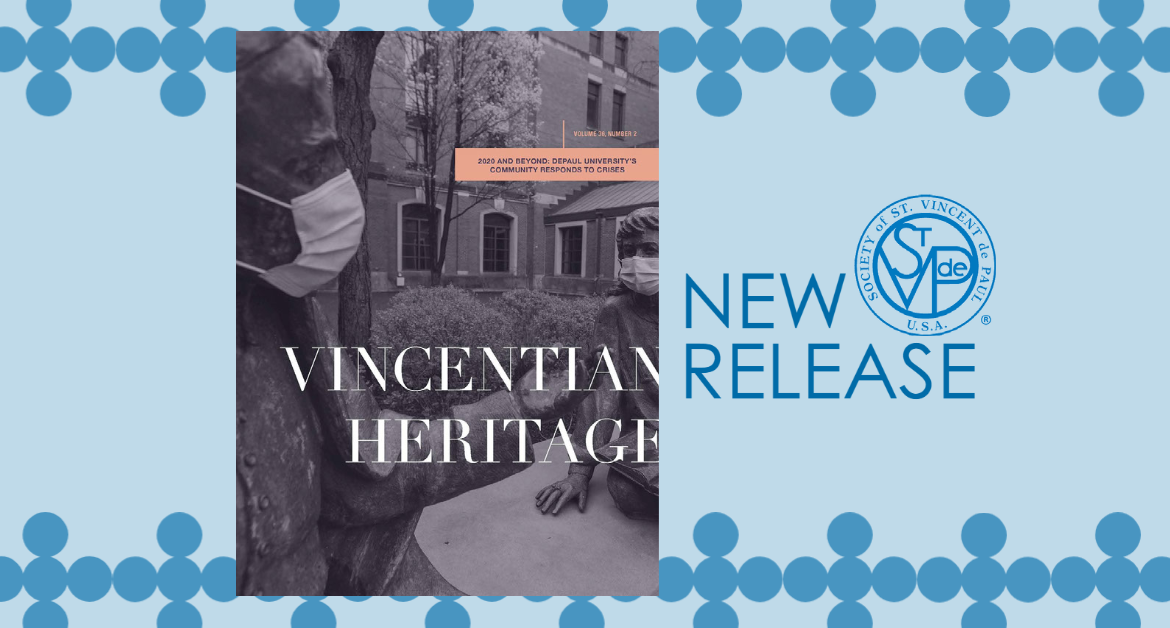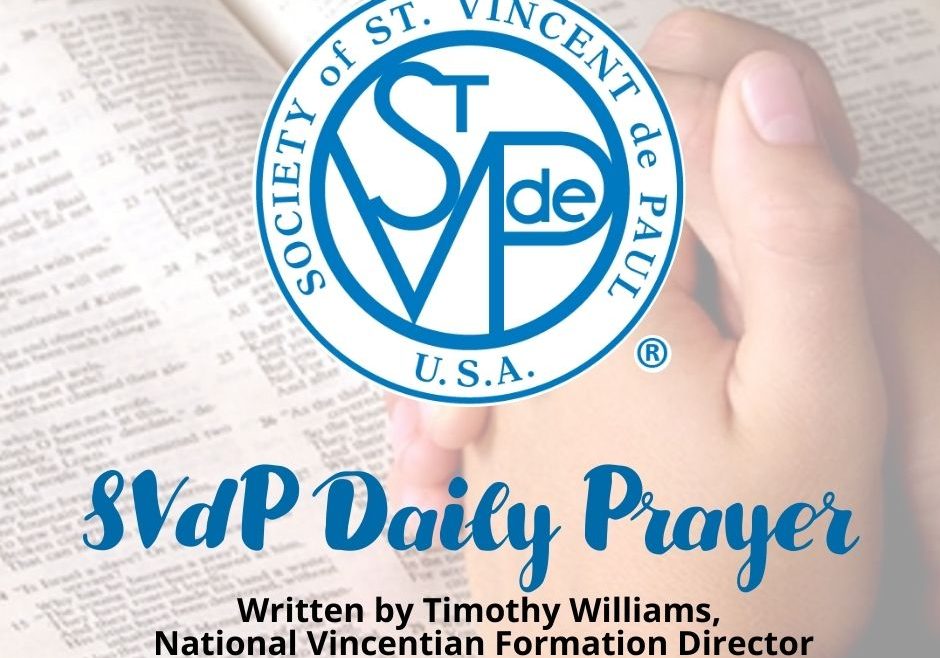There is an old saying, perhaps originating with the Greek philosopher Heraclitus, that we should “expect the unexpected.” Practicing what St. Vincent termed holy indifference, we instead are reminded to accept the unexpected.
This word Vincent used, indifference, carries with it a connotation of apathy, or lack of interest. Certainly, our patron was not calling us to apathy! Rather, he taught that we must be willing, at all times, to accept what God gives to us, without anticipating, or running ahead of His providence.
It is difficult for our human nature to concede a lack of control. It is perhaps especially difficult for Vincentians, who seek to love God “with the strength of our arms.” We want to plan things out, to set measurable outcomes that we can use to gauge our success. These are wonderful instincts, and perfectly fitting in the context of things like business or fitness goals, whose nature is thoroughly worldly.
But God’s work is not a business plan. It is through holy indifference that we let go of the goals that are driven by our own desires so that we may accept and serve only what God wills. As always, Christ gives us the model to follow, praying to be spared His crucifixion, saying “not my will but yours be done.”
This is not to say that we should make no plans! Indeed, it was Vincent who pointed out that the people of Châtillon were “practicing great charity, but it is not well organized.” [CCD XII:383] We organize and plan to do good as God wills, but the outcome is simply not up to us. If it were, then the cloth Veronica offered to Christ would surely have spared Him the cross.
“Planning is good,” St. Vincent said, “when it is submissive to God, but it goes to excess when we are eager to avoid whatever we fear; when we trust more in our precautions than in God’s Providence.”
Our planning goes to excess, he went on, “when we hope to accomplish much while anticipating His orders with our disorder which causes us to adhere to human prudence rather than the Word of God.” [Gettemeier, L, DC, VHJ, Vol. 19]
How many times have we seen in retrospect that what we thought was bad led to a greater good? We are indifferent when God’s will becomes our own, when we accept both good and bad, when we serve for love alone. Although “nature grumbles against it”,[CCD I:212] indifference is “the state of the angels” who are “always ready to do the Will of God, either in heaven or on earth”. [CCD X:564]
Contemplate
Do I seek my own goals, or God’s?
Recommended Reading
Vincentian Meditations (especially Putting Out into the Deep)



